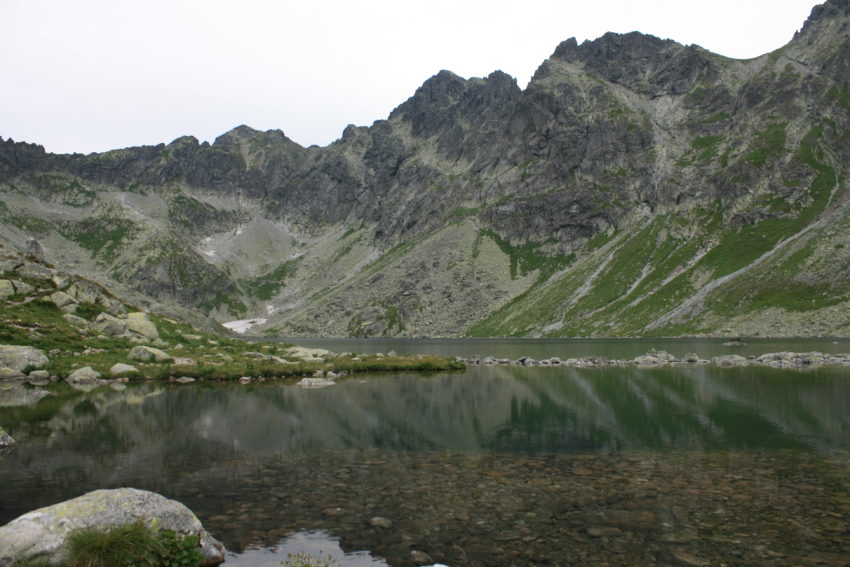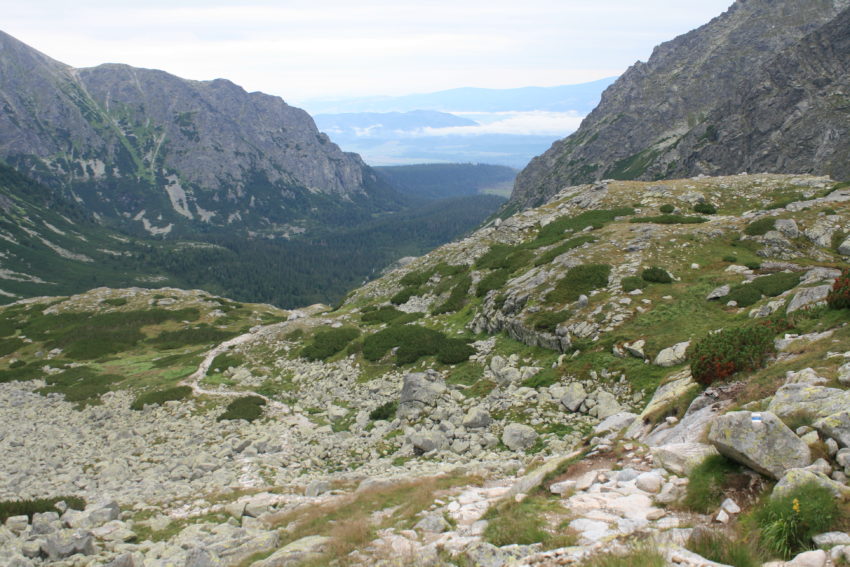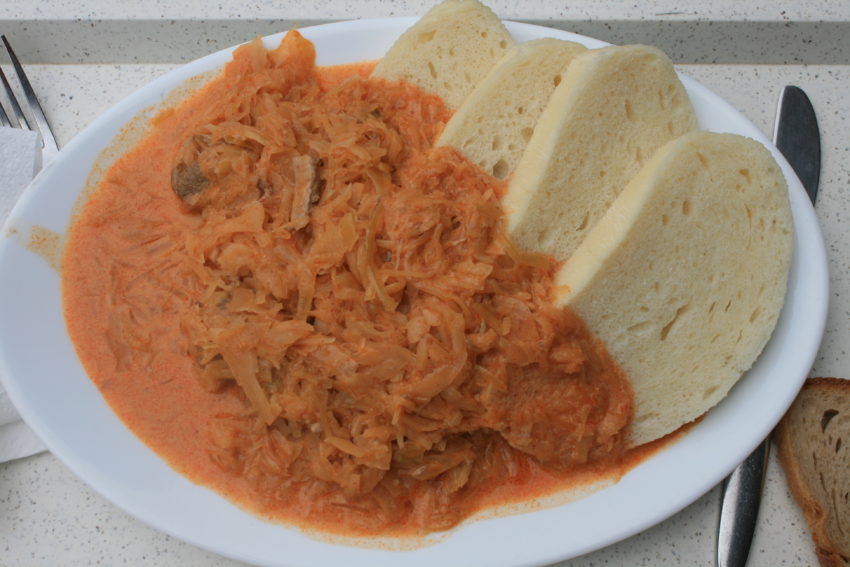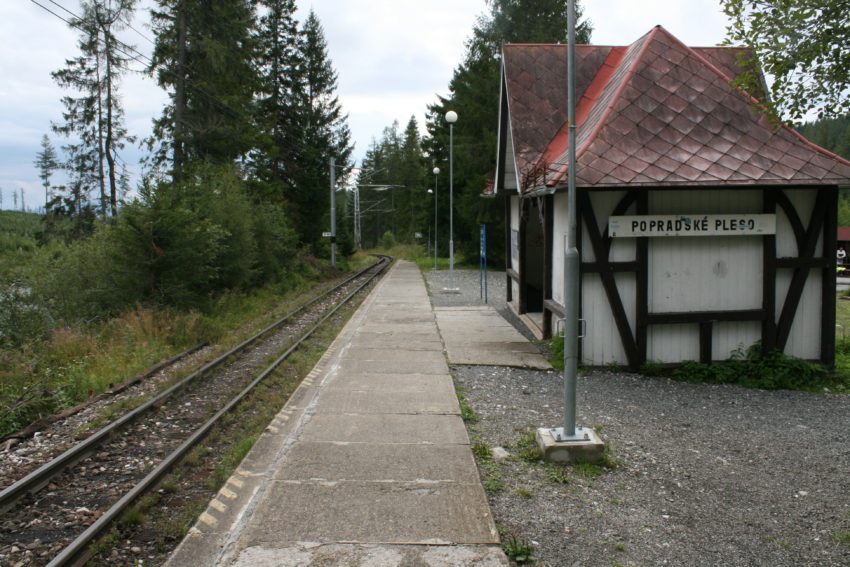Retired in Rome Journal: In Eastern Europe, discussion about communism is only a bunk bed away.

AUG. 20 — POPRAD, Slovakia
I had an interesting conversation last night. I shared a dorm room in Popradske pleso with three young Polish backpackers and a Slovak high school teacher.
“I’m Hungarian,” the Slovak said. “But I live in Slovakia. You don’t have that in America, do you? If you’re both in America, you’re American?”
The conversation turned into a philosophical discussion about the Americans’ and new Eastern Europe’s view of communism. I knew the discussion would going south fast when Petr (not his real name) said, “Communism isn’t that bad.”
Sure. Neither is a hot-lead enema. Just ask the people who went through it. Petr wasn’t one of those naive fanatics who denounce capitalism while holding the book of Marx in one hand and a sickle in the other. He was young, mid-20s, with the build of a college free safety. Born and raised in a small town outside Kovice, Slovakia’s second-biggest city, he studied in Hungary, home of both parents.
He knew a lot about America, from specific “South Park” episodes with a political bent to all of Michael Moore’s movies.
“Why do Americans think communism is so bad?” he said.
“Well, because … it is?” I said.
First, I will say I was once a closet Marxist. My University of Oregon’s entire sociology department was Marxist. I took Sociology of Education, Sociology of Sport, Sociology of Sport. I found myself walking around campus and suddenly I’d be wearing a black trench coat and a Cossack hat. My education leaned heavily toward a need for more even distribution. The core of evil in society is the discrepancy of wealth, of the bourgeoisie taking advantage of the proletariat. Karl Marx, whose childhood home in Trier, West Germany, I toured in 1978, was a genius. Everyone pulls for the state and the state pulls for everyone. The working class gets equal pay and the state takes care of the rest: housing, food, education.

Then I graduated. During my year around the world I went behind the Iron Curtain to Hungary. I went to Budapest and the factory town of Szeged. Talking to the factory workers and soldiers and people on trains, often over a bottle of vodka with dill pickles and black bread, I heard their stories. I heard their frustrations. I heard their dreams that they’d never fulfill. Then I came to one inescapable conclusion.
My sociology professors had never been east of Hartford, Conn.
Communism sucks. Yes, it’s a nice Band-Aid. When people are starving as in Russia or uneducated as in Cuba or persecuted as in Vietnam, communism is a viable option. And it worked.
For a while.
Then the “Animal Farm” theme comes through. Under communism, man is created equal. But some men are more equal than others. The Soviet politburo all had dachas on the Black Sea. East German government officials drove Mercedes. Romanian and Bulgarian bigwigs could shop in Western stores. If you were a ballerina or a musician or an athlete or anyone who could help promote the state, you were sent all over the world.
If you didn’t like it, you go to jail. That isn’t western propaganda. I interviewed an Albanian who spent 27 years in prison, 13 years once and 14 another. His crime? He told me he was a college graduate and met other “intellectuals” on a street corner. I got a cab ride in Leipzig, once part of East Germany, from a driver who said his folks sent him to the market once a month to stand in line for an hour for a tomato. Just three days ago the Polish schoolteacher I met said the communists took her father’s private business from him and threw him in jail for three years. Why?
Well, just because.
“To know a country, you must know its history,” Petr said. “The Hungarians told you they hated communism because it was forced on them. Czechoslovakia voted for communism in 1962.”
About this time one of the Polish rock climbers walked in, holding his toothbrush. He seemed older. He had the lean, chiseled features of a guy who can pull himself up a rock face for 200 feet. But gray flecked his hair which he nearly shaved clean on the sides. He looked old enough to have witnessed some things. He walked as if he had an edge. He did. He didn’t take kindly to Petr’s comments about communism being OK. Petr was 6 when Slovakia went democratic.
The Pole looked as if he spent a lot of time standing in line for tomatoes.

“Not everyone makes it in capitalism but at least you can try,” he said. “Under communism you couldn’t try.”
Petr made some valid points. You must consider what the people had before. Sure. I always tell people if they visit Russia, go to St. Petersburg and see why communism occurred. Then go to Moscow to see why communism failed. Go to the palaces on the St. Petersburg archipelagos. Massive estates with two-bedroom homes for servants, fishing ponds and fountains designed by famous artists served single families. Meanwhile, no one in the city had pets. They ate them all.
In the Kremlin you see the persecution of people, anyone who tried questioning the state. Here’s where communists are left speechless. Capitalism sucks when you’re in a ghetto mired in a circle of poverty with lousy schools and worse role models, where if you lucky enough to reach 40 years old you’re the equal of winning the lottery.
But at least they can say they’re angry.
“Petr, how can a system where you can’t say what you want be better than a system where you can criticize?” I said. “People in communist countries go to jail for criticism.”
He had no response. For once, he shut up and I could turn out the lights. Then the Pole jumped in.
“In the ‘70s and ‘80s Poland had a softer version of communism,” he said.

So did Hungary. It was Eastern Europe’s party capitol. Locked behind the Iron Curtain like a global prison, Eastern Europeans flocked to Budapest to drink the famed Egri Bikaver (Bull’s Blood) wine, marvel at the castle overlooking the Danube and gaze at women who would lay the groundwork for the biggest stars in the porn industry today.
Yet I remember visiting a soldier in Budapest who lived with his mother and her ex-husband in a two-room apartment. The husband couldn’t move out because the government gives each family one apartment.
That’s it.
Ferenc was a soldier. All he dreamed of was opening a flower shop. He knew, in 1978, that was impossible. I remember when I left him. He handed me his address. He wanted me to put it in my old college newspaper. He hoped he’d meet an American woman who he’d marry and get the hell out of Hungary. I’ll never forget the look of desperation in his eyes as we shook hands at the tram station.
Postscript: Ferenc never opened a flower store. After democracy came to Hungary in 1989 he wound up in construction and now he’s a company executive, happily married to a Hungarian woman with two kids and a gig with a soft rock band.
I thought of Ferenc today as I climbed 1,500 feet over boulders and over creeks to Hincove pleso, a lake right on the Polish border. It wasn’t that difficult but after three days of hiking, every step over a boulder the size of a Galapagos turtle seemed like I hoped it’d be my last. After that, it was all downhill. I walked down the two-lane paved forest road with day trippers to the tiny Lilliputian train station of Popradske pleso. After covering 26 miles over four days, I found myself unceremoniously sitting alone in a station that’s smaller than the convenience booth where I bought the ticket across the street.
Now I’m in my Penzion Atrium’s sexy restaurant having an ice-cold Zlaty Bazant beer. From Popradske pleso I took a modern, clean, comfy train that stopped in every mountain town all the way to Poprad. I saw up close the pleasant little villages I saw from 6,000 feet up yesterday. I saw big A-frame service stations, huge modern hotels, tree-lined streets, healthy, smartly dressed Slovacs walking spotless sidewalks.
More than 20 yeas ago, they turned the lights on in Eastern Europe. Life in the light, anywhere, is better than life in the dark.

